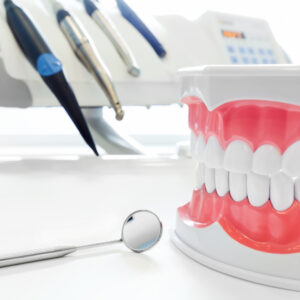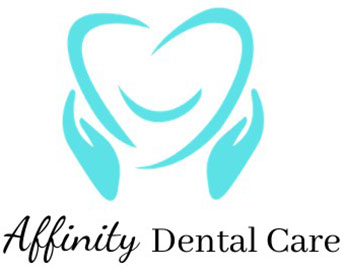
Dental Family Practices Owned by Corporate Dentistry
The landscape of corporate dentistry has changed a lot since I graduated in 1990. Back then, there were not a lot of dentists and, equally, dental offices. Dentists practicing were mostly graduates from Canadian dental schools.
The situation has changed significantly as more foreign-trained dentists have been allowed to practise in Ontario, compounded with the rapid expansion of corporation-owned dental clinics.
The other conditions affecting dentistry are the costs of dental education, the prices of establishing a practice and the expenses of keeping a family dental practice viable and up-to-date. Allowing dental hygienists to open a hygiene clinic independently at the end of 1993 also impacted the viability of running a solo family dental clinic.
All those trends can affect the quality of dental services our patients can receive. Let us examine the situation with corporate dentistry more in-depth here. In my estimation, about 8% of dental clinics in Ontario belong to one of the dental corporations. The number has been steadily increasing in the last few years, and the trend will continue.
What are dental corporations?
Dental corporations are for-profit organizations operated by executives with dentistry, financial, marketing, or operational backgrounds. They are generally funded by investors who can be individuals, fund companies, investors, shareholders or banks. There are two large dental corporations and several smaller ones. One organization is traded on the Toronto Stock Exchange. Ultimately, their mandate is for profit to satisfy the investors and debtors.
Practice Ownership
Aside from the corporate-owned dental clinic, there are also the traditional privately owned dental clinics owned and operated by the practicing dentists in their clinics.
Corporate dentistry is attractive to some dentists because of the following factors:
1) Debt to new dental graduates
Getting a dental education nowadays is not cheap. When I attended dental school at the University of Toronto, my tuition was about $1,300 per year, and now it is approximately $50,000 per year at the same school! The students are also responsible for purchasing some small dental equipment and supplies for four years. The total cost can easily be $250,000 after four years, not to mention the cost of living, books, transportation etc. To make the situation worst, they also need an undergraduate degree before they can get into dental school in Canada here.
For those students who were not accepted in Canada and needed to go to the United States to study dentistry, their total costs could reach US $500,000.
Since many new graduates have a high debt load, they prefer to work in an environment
with guaranteed income to manage their debt load. Corporate-owned dental clinics
usually have a high associate dentist turnover rate, so they tend to have more openings
for new graduates to join.
Associate dentists in practice are the ones who have no equity in practice. They are
usually paid by the percentage of their billings.
2) The desire for less interaction with corporate dentistry management and insurance companies
Dental management is getting much more complicated to stay competitive and invisible to the public. There are a lot of rules and regulations that require execution and extensive documentation. With the norm of having a website, social media exposure and digital marketing. Running a dental clinic is ever getting more challenging and time-consuming.
Hiring and maintaining a capable management team for the office is arduous. The amount of time and knowledge knowing how to obtain the correct information and jumping through hoops is an art and skill that not every staff have.
Corporate dentistry has more money to spend on staffing, billing, management and marketing. The dental corporations provide the administration, and the associate dentists can focus on dentistry.
3) Established dentists looking to extend their career while decreasing work hour
Dental corporations constantly seek to buy out well-established offices and offer established dentists incentives like higher purchase prices and, sometimes, a small piece of the ownership.
Because dental corporations can pay above market values, they scoop up many dental offices and maintain their existing names and appearances.
Like real estate, the price of established dental offices is increasing, with multiple bidding for the desirable ones.
4) The high cost to set up a new dental practice and long breakeven time
Due to the extremely high cost of setting up a new family dental practice from scratch, the challenge in this ever-management-focused environment to be successful and the ever-longer time to make the practice break even, the prospect of starting up a new clinic or purchasing an existing practice is too much to most new dental graduates or dentists from foreign countries. They find the associate dentist positions are more attractive and readily available for a corporate-run dental clinic which provides administrative.
Lately, the increasing interest rate will place more wood into the fire, making it even less affordable for a dentist to start a new practice or purchase one.
With the market already strained with an over-supply of dentists, the allowance for hygienists to establish their hygiene practices is tightening the dental market.
The issues with corporate dentistry
1) Corporate dentistry is a business model
Despite many dental corporations’ slogans on their dentist-focused and patient-oriented philosophy, they have investors to pay and answer to. It is a profit-focused business model in which not just the dentists and staff are to be paid. Investors also expect good returns on their investments.
Many clinics have a monthly billing target to meet internally, and the targets are ever-increasing per month.
2) Lack of ownerships
The associate dentists have little or no ownership of the corporate-owned dental practices. They generally do not have strong ownership of patient care because they can leave the practice without strings. The desire for long-term relationships and better patient health care may not be their priority because the treating associate dentists are aware that they may not be the ones treating them next. Billings can be their priority under the pressure of management.
3) Different dentists at different time
The lack of ownership leads to high turnover- patients may not see the same doctor from one visit to the next.
Even the previous dentist owners are only obligated to stay for five years after the buyout. Most of them are close to their retirement age, and most would leave after five years.
4) A corporate dentistry carries less flexibility in keeping up with the latest technologies
The costs and expenses are the major concerns for all practices. However, a corporate-owned clinic may not be as ready to invest in the latest technologies based on a dentist’s desire and want. Adapting to new treatment modalities and purchasing new equipment will take longer time in corporate clinics.
Corporate-owned dental clinics in Ontario are not easily identifiable because they keep their original names and appearances after the buyout. Some previous dentist owners have left the practice, but most have multiple practicing associate dentists working in the dental offices.
I am proud to point out that Affinity Dental Care is based on the traditional healthcare model under my ownership. I am an experienced family dentist focusing on wellness dentistry. I am passionate about providing comprehensive dentistry in my family dental office in Burlington. My focus is on overall care in the long run for my patients, with a strong sense of my patients’ dental health ownership.
Keeping up with the latest knowledge is my affection. My clinical skill in recognizing, assessing and treating sleep apnea using mandibular advancement devices and acquiring myofunctional therapy techniques for young patients are the two latest education my staff and I are learning to master.
Happy to serve clients with a variety of dental issues, Call us to book an appointment today.
Read some of our other blogs for more information on teeth implants, botox in dentistry, and more.




Comments are closed.